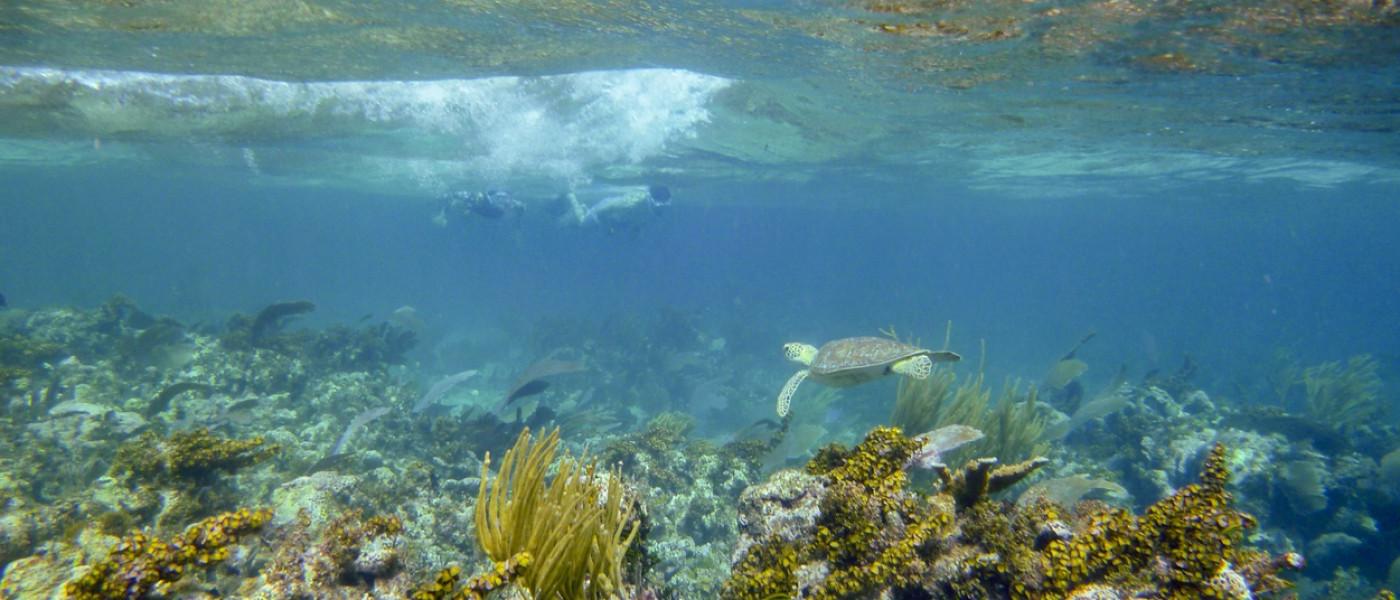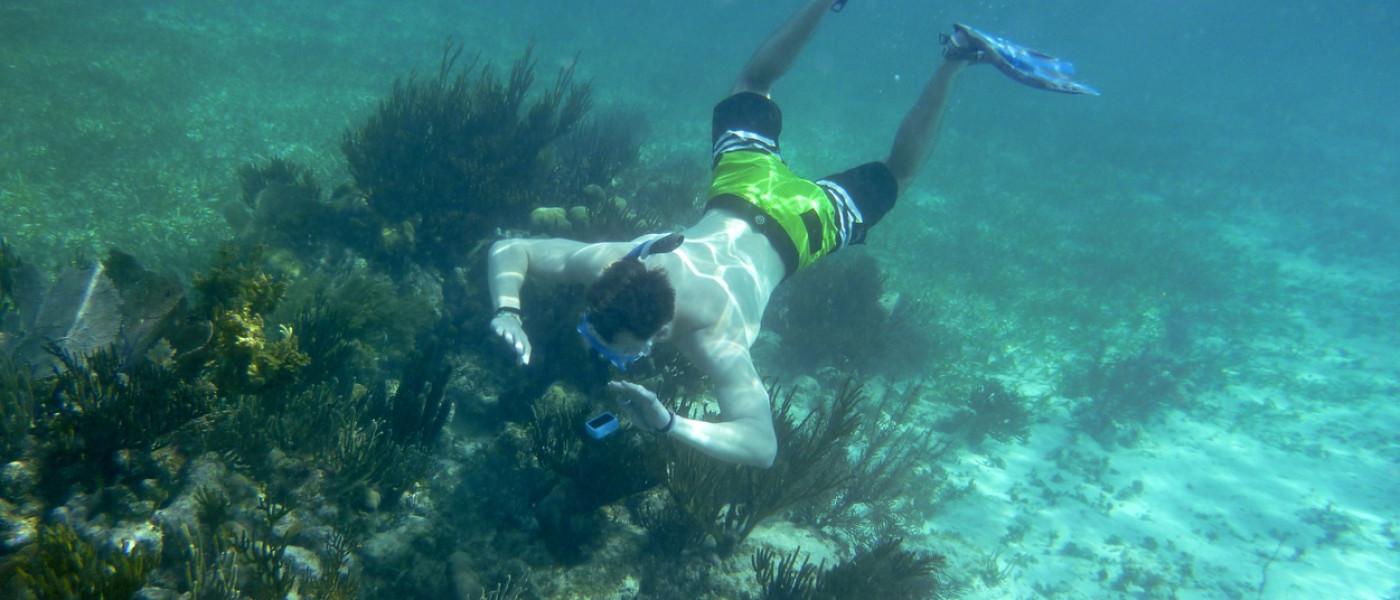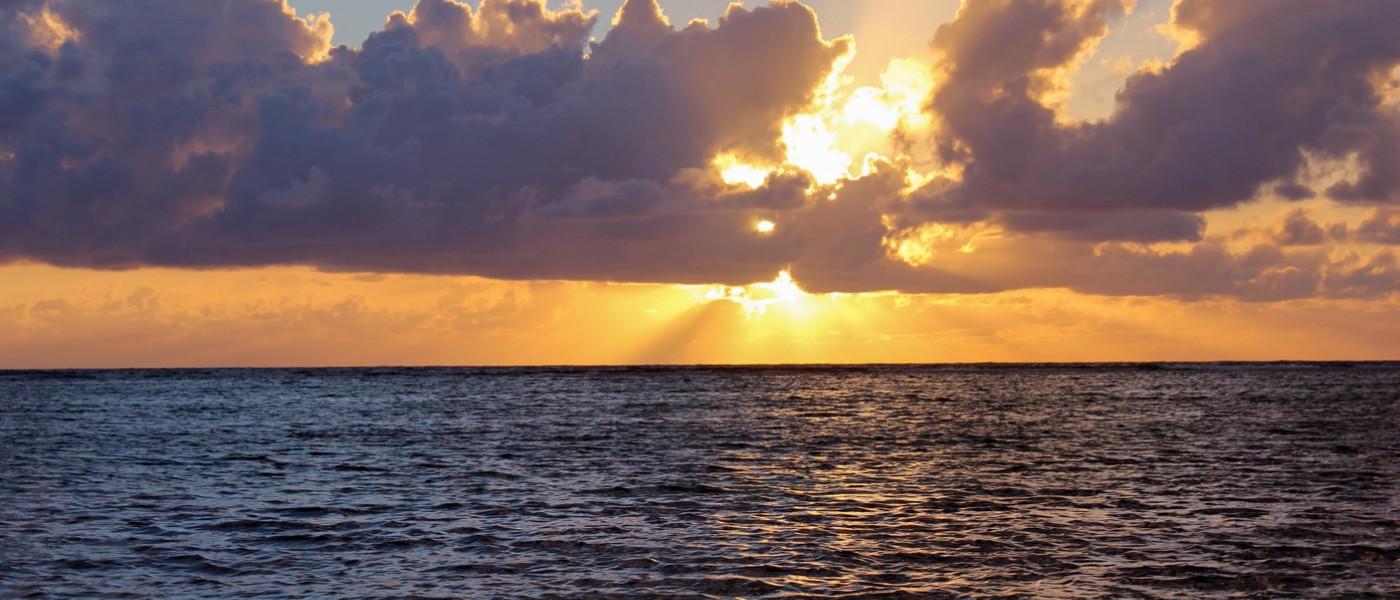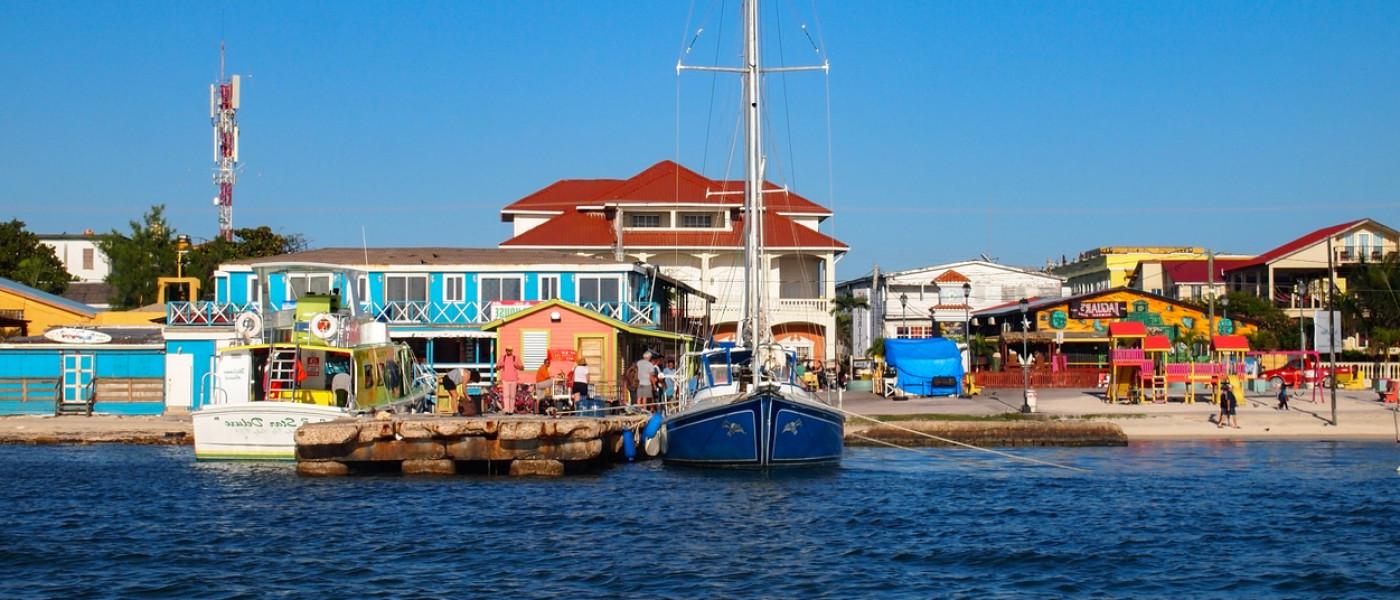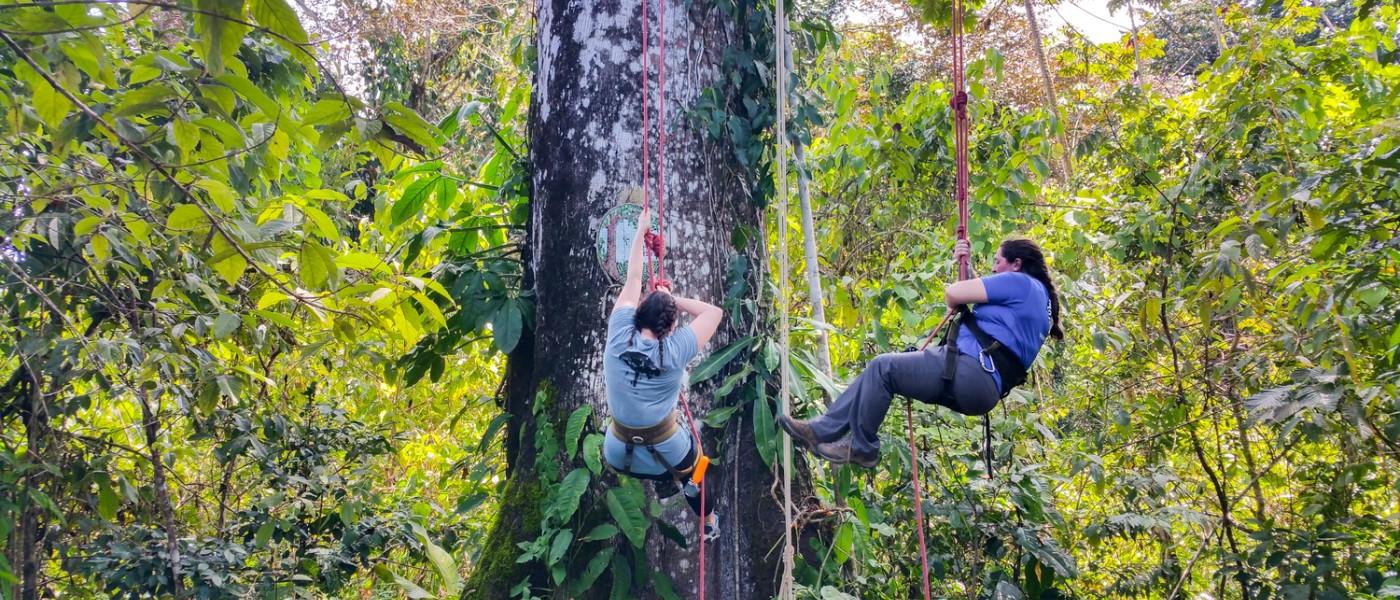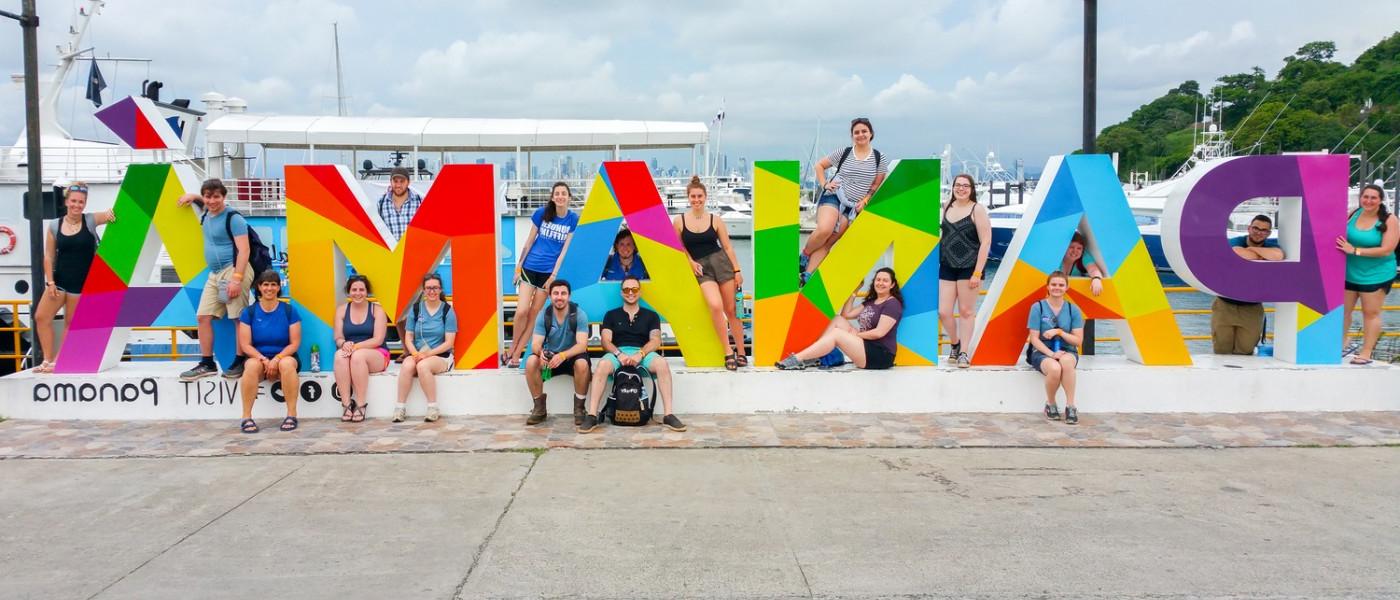Program overview
Take a deep dive into the mysterious world beneath the water’s surface. Become skilled in caring for the aquatic animals and plants that populate our zoos and aquariums, and learn the intricacies of the fastest-growing sector of the food industry: the cultivation of marine and freshwater species. UNE’s bachelor’s degree in Aquaculture and Aquarium Science prepares you for a range of aquatic science professions, and there is no better place for your studies than our unique riverside and oceanfront campus.
The B.S. in Aquaculture and Aquarium Sciences is no longer accepting students. The B.S. in Aquaculture, Aquarium Sciences, and Aquaponics and the B.S. in Sustainable Ecological Aquaculture are UNE’s exciting new majors for students interested in these areas.

Why UNE for Aquaculture and Aquarium Science
With the only Bachelor of Science program in Aquaculture and Aquarium Science in the U.S., UNE is the ideal place for your studies. Located at the convergence of the Saco River and Atlantic Ocean, we offer direct access to both fresh and salt waters as well as cutting-edge facilities.
- Recirculating aquaculture, aquaponics, and flow-through seawater systems
- Aquarium Science and Conservation Lab
- Zebrafish facility
- On-campus administration of AALSO (Aquatic Animal Life Support Organization) Level 1 Certification exam
Academics
Examples of Available Courses
There are many ways you can navigate this major. The following are some examples of the exciting courses that you can take:
- Principles of Aquaculture
- Techniques in Finfish and Shellfish Culture
- Health, Nutrition, and Feeding of Cultured Organisms
- Fish Genetics
- Principles of Aquarium Operations & Science
- Environmental Microbiology
Meet Chris, Aquaculture '22
An aquaculture major interning at an oyster farm in Georgetown, Maine, Chris is learning — hands on — how to raise a sustainable, renewable protein source with the goal of starting his own oyster farm.
Careers
While developing a solid foundation in aquatic sciences, you will acquire strong analytical business skills, master vast technical skills, and nurture your ability to work closely with others through classes, research, and internships. With virtually all of the program's graduates employed in their field or accepted into graduate school within six months of receiving their diplomas, we know that our students leave the program ready to succeed. They have pursued a wide range of professions, including:
- Aquatic Collection Curator
- Entrepreneur
- Breeder
- Water Quality Technician
- Fish Farmer
- Veterinarian
- Hatchery Manager
- Fisheries Biologist
Career Advising
Whether you have a specific career goal in mind or a vague idea of the field that interests you, Career Advising is here to help you plan your next step.
Global Education
In addition to opportunities to spend a semester abroad in Tangier, Morocco or Seville, Spain for the same cost as studying at UNE's Maine campuses, you may choose to enroll in one of our marine sciences-related travel courses. To enroll in these courses and learn more, visit the Global Education Program website.
Interested in studying abroad? Make a plan with your advisor.
Experiential Learning
Our Aquaculture and Aquarium Science degree program provides a skills-heavy, hands-on curriculum that uses an applied approach to marine and freshwater aquatic sciences, giving you real-world experiences — because studying is not the same as doing.
Internships
Our active community partnership with many organizations provides work experience at diverse sites, including:
- Nonesuch Oyster Co.
- New England Aquarium Services
- Saco Salmon Restoration Alliance and Hatchery
- Gaia Live
For more information email the Academic and Career Advising Center at advising@c178.net.
Skills and Opportunities
- Learn to care for aquatic animals and plants
- Design and operate aquaponics systems
- Master the principles of water movement and filtration
- Perform your own research, beginning freshman year
- Attend and present at national conferences
Hands-on Marine Research
Research Opportunities
Undergraduate research is an essential part of our programs, no matter which major you choose. All students conduct research in the field through their regular coursework beginning in their freshman year, with additional opportunities to gain experience through faculty labs and multi-institutional initiatives.
Research Fellowships
In addition to lab classes and faculty lab positions, UNE provides pathways for students to obtain research experience through fellowships from partners and programs including Pratt & Whitney, Bristol Seafood, SEANET, and the Summer Undergraduate Research Experience.
Research Areas
The field of Marine Science is as broad and diverse as the vast oceans that cover most of our planet. At UNE we touch upon all facets of marine science with special focuses in the following areas of research.
Applied Marine Technology
Applied marine technology is a crucial Marine Programs research area that cuts across all others. Robotics, research vessels, remote and autonomous underwater vehicles, environmental monitoring, and modeling are all vital tools that enable modern marine research to occur. Researchers in this area are interested in innovations in and novel applications for marine technology.
Biology of Marine Organisms
Our Marine Programs faculty and professional staff conduct a wide range of research in the areas of biology and ecology of marine organisms. This research area is very broad and ranges from marine genetics to the migration patterns of large animals like sharks, seals, and whales. From seaweed to sharks — plankton to pinnipeds (seals!) our team covers it all.
Food from the Ocean
With a global human population headed towards 10 billion by 2050, understanding the interactions between the ocean and what we eat is more important than ever. Our location on the coast of Maine has a deep heritage and connections to the people and communities who have harvested food from the sea, and the ecosystems that provide it. We have robust research and education programs in this focus area including fisheries science and management, ecological aquaculture, marine entrepreneurship, migration of highly migratory species, and food web ecology.
Human Impacts on the Ocean
Evidence of human impact on the ocean is everywhere, not just limited to our coastal oceans. Plastics and chemicals have been documented from the deepest depths of the global seas, while climate change affects all aspects of the ocean. More and more, we cannot separate studying the natural ocean environment apart from human influence. Fisheries, microplastics, policy, pollution, conservation, and restoration all fall into this category. UNE Marine Programs faculty, professional staff, and students are focused on research and solutions across the spectrum of human influence on our seas.
Facilities
UNE offers some of the best research, lab, and classroom facilities in the nation for the study of marine science — including state-of-the-art buildings, a fleet of research vessels, and our own research island — and you can access all of them right from our main campus in Biddeford, Maine.


